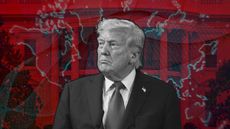Economy
The latest news, updates and features on the UK economy, the impact of what's happening in the US economy and other economic stories from around the world. Expert analysis and opinion from MoneyWeek.
Explore Economy
-

CPI vs RPI inflation: what is the difference between ONS measures?
The Office for National Statistics calculates CPI, RPI and CPIH each month. What are they and what do they reveal about UK inflation?
By Sam Walker Last updated
-

What is inflation and how does it affect you?
The latest inflation figures are released each month. What is inflation and how does it impact your personal finances?
By Daniel Hilton Last updated
-

UK inflation forecast: where are prices heading next?
UK inflation fell sharply in January. Is price growth expected to fall further in 2026, and when will inflation go back to the 2% target?
By Daniel Hilton Last updated
-

UK inflation: What are the Consumer Price Index release dates?
The UK’s inflation reports are published monthly. When do they come out and where are prices heading?
By Daniel Hilton Last updated
-

UK inflation fell to 3.0% in January
After rising in December 2025, UK inflation resumed its downward trajectory in January 2026
By Dan McEvoy Last updated
-

UK unemployment hits highest level since 2021 – will interest rate cuts follow?
UK unemployment reached its highest rate in almost five years by the end of 2025. Is AI to blame and will the Bank of England step in with an interest rate cut in March?
By Kalpana Fitzpatrick Published
-

ONS: UK economy grew by ‘lacklustre’ 0.1% in final quarter of 2025
The construction sector performed its worst in more than four years in the final quarter of 2025, the latest Office for National Statistics (ONS) GDP figures show
By Sam Walker Last updated
-

Making Tax Digital: what is it and who does it affect?
Sole traders and landlords will have to start reporting their earnings digitally on a quarterly basis to HMRC from this April – here is what you need to know
By Laura Miller Last updated
-

What is Donald Trump’s net worth?
Donald Trump’s net worth makes him the richest-ever US president, and the only billionaire to live in the White House. We take a deep dive into his fortunes
By Oojal Dhanjal Last updated
